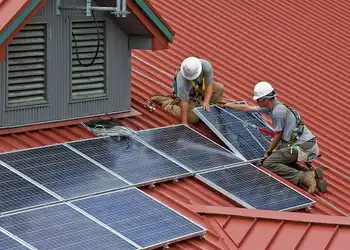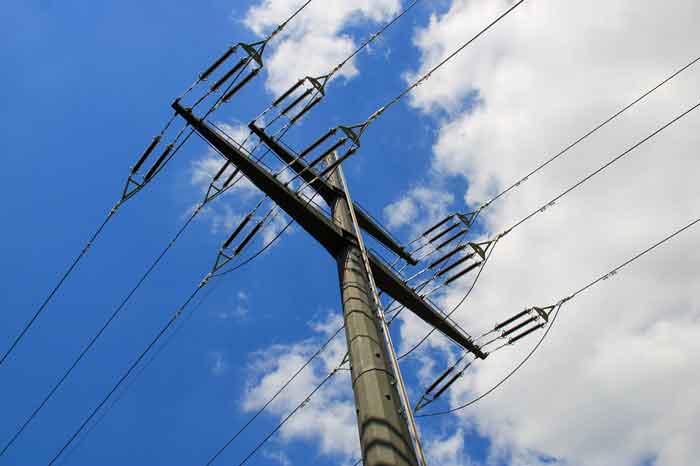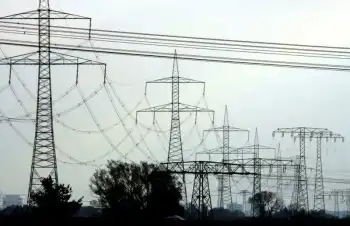Coal-plant backers see new hope in a new president
But an alliance of power and coal companies that had worked with the government on the project, dubbed FutureGen, stuck together. Their allies in Washington pulled strings to keep the project breathing — though just barely — long enough to let President Bush's successor consider it.
Now the FutureGen Alliance, which chose Mattoon over a site in Texas, believes there is a good chance to revive plans to build the plant, which would test whether greenhouse gases could be stored underground instead of sent out smokestacks.
"We're awaiting the change of administration, I'll put it that way," said Mike Mudd, chief executive of the FutureGen Alliance.
Members talk regularly to policy experts on the campaign staffs for Sens. Barack Obama and John McCain, pushing the idea that FutureGen should be a national priority, Mudd said.
"The message that we have been delivering and will just ratchet up is that FutureGen at Mattoon is not just a public works project in Illinois," he said.
Sen. Dick Durbin, one of the project's most vocal backers, said he believes Mattoon has a chance with either candidate, "perhaps a little better chance with Sen. Obama."
Neither campaign responded to a request for comment from The Associated Press, but Obama and McCain repeatedly talked during their last televised debate about the merits of clean-coal technology to control carbon-dioxide emissions.
Obama has expressed support for building FutureGen in his home state, while McCain and running-mate Sarah Palin have pledged to spend billions to develop technology to capture and stores the carbon from coal.
That's what FutureGen, launched in 2003 by President Bush, was designed to do.
But the plan — which called for building the plant at one site — was falling out of favor with the Energy Department even before Mudd announced in December that Mattoon, a town of 17,000 about 50 miles south of Champaign, had been selected.
Then the DOE, which was going to cover 74 percent of the costs, scrapped the project in January, complaining that its projected price tag had increased from $950 million to $1.8 billion. But the project's backers rejected the cost argument, blaming Bush's Texas roots and the snub of two sites in that state.
The agency later announced plans to spend $1.3 billion on carbon-capture technology at several still-to-be-selected sites around the country.
DOE spokesman John Grasser said the agency is reviewing "several" bids from interested builders and plans to announce the next step for that project in December.
Still, Mudd and Mattoon officials believe they could keep the original plan alive.
Angela Griffin, the president of the local economic development group Coles Together, says FutureGen and its prospects come up at every business meeting.
"Regardless of the nature of the meeting, it always comes up — 'Where are we? What are we doing? What can we expect with the next administration?'" she said. "We've had tremendous optimism in the county and in the region, frankly, for a new administration doing the right thing."
One of the reasons they're optimistic is the support they've gotten from Durbin, the Senate's No. 2 Democrat.
Durbin, who complained bitterly that the decision to shelve the plan to build FutureGen at Mattoon was driven by Bush and other Texans in his administration, convinced the Senate Appropriations Committee to set aside more than $134 million in federal money for FutureGen into 2009.
Durbin also threatened to block any nominations the president makes to the Energy Department through the end of Bush's term because of the administration's withdrawal from the project.
"I think Sen. Durbin last summer made a very strong case in Illinois and Washington that this project was needed and that he was going to continue to watch what was happening and help," said John Mead, director of the Coal Research Center at Southern Illinois University in Carbondale. "Coming from somebody in leadership, that means a lot. I think that's very important."
The Illinois congressional delegation and the companies behind the project also gathered congressional and coal-industry allies in key coal states such as Wyoming and Kentucky.
Project supporters and outside observers, like Massachusetts Institute of Technology professor Howard Herzog, also note that the Mattoon site was already well into the planning stages when the DOE walked away.
"The biggest reason I think that FutureGen mattered was it was the most advanced along the way, and I think there is some time urgency," said Herzog, who last year co-authored a study on the future of coal power. "We start hearing from the scientific community that we need to put the technologies in place sooner rather than later."
On October 20 the International Energy Agency said the world's most industrialized countries, including the United States, aren't doing nearly enough work on carbon-capture projects to make the technology viable. The agency, which makes energy policy recommendations for its 28 member countries, said the world needs 20 demonstration projects over the next decade.
Even if a new president does revive FutureGen, it'll be years before it's up and running.
That's why Durbin hopes FutureGen will be in the next president's first budget, something Congress typically gets its initial look at in February.
And if all goes well, Mudd would like to start building in 2010 and have the plant running by 2013.
Although environmentalists have mixed feelings on clean-coal technology, many say it's clear that coal is not going to disappear as a source of electricity.
"Regardless of which candidate receives the majority of votes on November 4th, on November 5th the majority of the United States' electricity is still going to be coming from coal," said John Thompson, a Carbondale, Ill., resident and a member of the Massachusetts-based Clean Air Task Force. "If we don't change the way coal is used, it's gonna' kill us."
Related News

Coronavirus could stall a third of new U.S. utility solar this year: report
WASHINGTON - About 5 gigawatts (GW) of big U.S. solar energy projects, enough to power nearly 1 million homes, could suffer delays this year if construction is halted for months due to the coronavirus pandemic, according to a report published on Wednesday.
The forecast, a worst-case scenario laid out in an analysis by energy research firm Wood Mackenzie, would amount to about a third of the utility-scale solar capacity expected to be installed in the United States this year.
The report comes two weeks after the head of the top U.S. solar trade group called the coronavirus pandemic "a crisis here" for…





